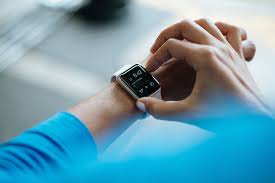 Digital biomarkers are quantifiable physiological and behavioral data points collected and measured by digital technologies such as smartphones, wearables, implantable devices, and other connected health monitoring tools.
Digital biomarkers are quantifiable physiological and behavioral data points collected and measured by digital technologies such as smartphones, wearables, implantable devices, and other connected health monitoring tools.
Digital biomarkers are digitally collected physiological and behavioral measures that explain, influence, or predict health-related outcomes.
Digital biomarkers bridge the gap between traditional medical assessments and continuous, personalized health monitoring.
In the context of maternal and neonatal health, digital biomarkers are used to monitor and improve health outcomes, particularly in relation to birth-related mortality.
They offer continuous, real-time insights into an individual’s health status.
Data Collection Methods
Smartphone sensors Wearable devices (smartwatches, fitness trackers) • Implantable medical devices • Mobile applications • health monitoring systems
Unique Advantages of digital biomarkers
Continuous and passive data collection High-frequency measurements Non-invasive monitoring Real-time analysis Potential for early disease detection
Applications
Neurological Disorders Parkinson’s disease progression tracking Tremor analysis Cognitive function assessment Early detection of neurological changes Monitoring medication effectiveness
Cardiovascular Health Heart rate variability monitoring Irregular heart rhythm detection Blood pressure tracking Physical activity analysis Stress level assessment
Mental Health Mood tracking Sleep pattern analysis Anxiety and depression indicators Behavioral change monitoring Treatment response evaluation
Chronic Disease Management Diabetes glucose level monitoring Respiratory disease progression Medication adherence tracking Symptom progression analysis Patient engagement optimization
Digital markers will play an increasingly crucial role in preventive medicine, early disease detection, and personalized treatment strategies.
